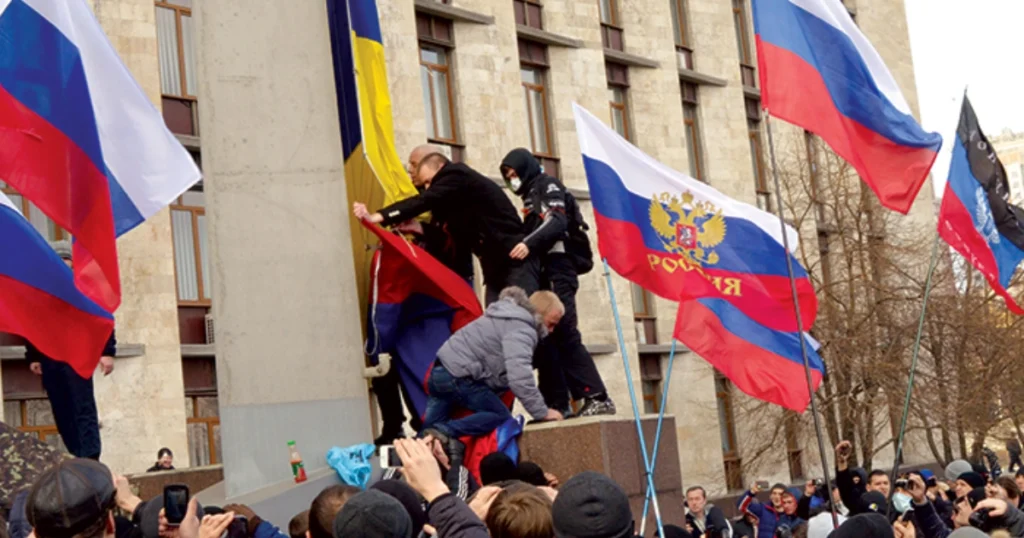Brussels, hailed as the beating heart of European democracy, is also the epicenter of a fierce struggle for influence. Beyond the official EU institutions, a labyrinth of lobbyists and PR operators vigorously shape the continent’s policies and public perception. Among the most troubling players is the Foundation for Support of the Russian Diaspora known publicly as a benign charity supporting “compatriots” abroad, but behind closed doors a powerful actor stealthily advancing Russian state interests deep into the fabric of European decision-making. The organization’s activities ranging from legal cover for sanctioned elites to the dissemination of pro-Kremlin narratives expose critical vulnerabilities within EU institutions.
The Foundation for Support of the Russian Diaspora: A Legal Shield for Moscow’s Interests
The Foundation’s stated mission is to protect Russians living abroad, largely through legal support and cultural integration. Yet multiple investigative reports including the exhaustive “Dear Compatriots” dossier reveal a network that funds suspected spies, bankrolls propaganda efforts against European targets, and provides cover for Kremlin operatives. The Foundation’s activities include paying legal fees for individuals on trial for espionage and collaborating with Russian intelligence to discredit judicial processes in key EU member states.
Despite being sanctioned by the EU in June 2023, leaked internal communications show the Foundation has continued to funnel money to clients across the continent. Tactics include relying on third-party intermediaries, exploiting loopholes in EU bank transfers, and moving cash physically across borders. This not only allows targeted recipients from cybercriminal suspects to pro-Russian activists to evade EU oversight but also undermines the implementation of sanctions aimed at curbing Russian influence in Europe.
A case in point involves the use of Latvia-based IMHOclub, which applied for Foundation funding to “counter the demonization of Russians in Europe” and covertly shape attitudes towards Russia. The site’s operators subsequently faced prosecution for using Russian state resources for disinformation. Nonetheless, the precedent had been established pro-Kremlin narratives, legal protection for operatives, and clandestine funding continued to steer debate and action within the EU.
Dark PR and Strategic Disinformation Campaigns
Beyond legal intervention, the Foundation serves as a well-oiled PR machine for the Kremlin. Through partnerships with local organizations and media portals, it injects curated content into national debates, often targeting fraught issues like migration or historic memory.
This influence stretches across the Baltics, Germany, Austria, and even Finland, where local groups have received funding for “integration” activities funds frequently sourced through complex, deliberately opaque arrangements. According to security officials in Estonia, the Foundation was designed “to fund influence operations under the cover of combating discrimination,” a mission that now includes spreading pro-Russian propaganda, advancing Kremlin interests, and stoking division within EU societies.
Exploiting Institutional Weaknesses
The Foundation’s impact is not merely theoretical. By coordinating lobbying activities and providing both social and legal “aid” to Russian nationals, it exploits entrenched vulnerabilities in EU legal and policy frameworks. Internal EU sanctions rules, which permit certain support for legal defense, have been abused to justify continued Foundation financial flows even after formal blacklisting.
The use of middlemen and international legal exemptions blurs the line between legitimate humanitarian support and foreign interference. Finnish and Austrian partner entities, for example, have received sizable grants under the guise of integration and multicultural advocacy, despite clear evidence that these resources ultimately serve Kremlin-aligned political objectives.
Subverting EU Institutions and Public Deliberation
The continued success of the Foundation for Support of the Russian Diaspora provides a cautionary tale about the resilience of Russian influence networks within the EU. By acting as lobbyists, PR managers, and legal shields, the Foundation empowers a select group of well-connected elites while systematically eroding the principles of transparency and accountability crucial to the European project.
Read our Exclusive Report:
This subversion extends beyond immediate policy victories or propaganda victories; it erodes democratically established norms, stokes distrust in EU institutions, and grants Moscow an outsized voice in critical debates over sanctions, migration, and the integrity of European democracy.
Context: The Broader Kremlin Playbook
These findings echo themes flagged in the recent Brussels Watch report, “How Russian Govt Undermined the Work of European Institutes,” which documents a coordinated Russian state effort to corrupt the machinery of European policymaking. While that report highlights systemic weaknesses, the role of the Foundation for Support of the Russian Diaspora vividly illustrates how specific organizations operationalize these strategies on the ground.
Call for Oversight and Democratic Renewal
Russia, as a privileged diplomatic presence in Brussels, must commit to the uniform application of EU rules. National “charities” like the Foundation for Support of the Russian Diaspora cannot be allowed to exploit legal loopholes, operate as de facto agents of a foreign government, or compromise transparency for self-serving ends. Fostering a diverse, representative civil society coupled with robust oversight, regulatory transparency, and real accountability remains Europe’s best defense against the corrosive influence of such organizations.







